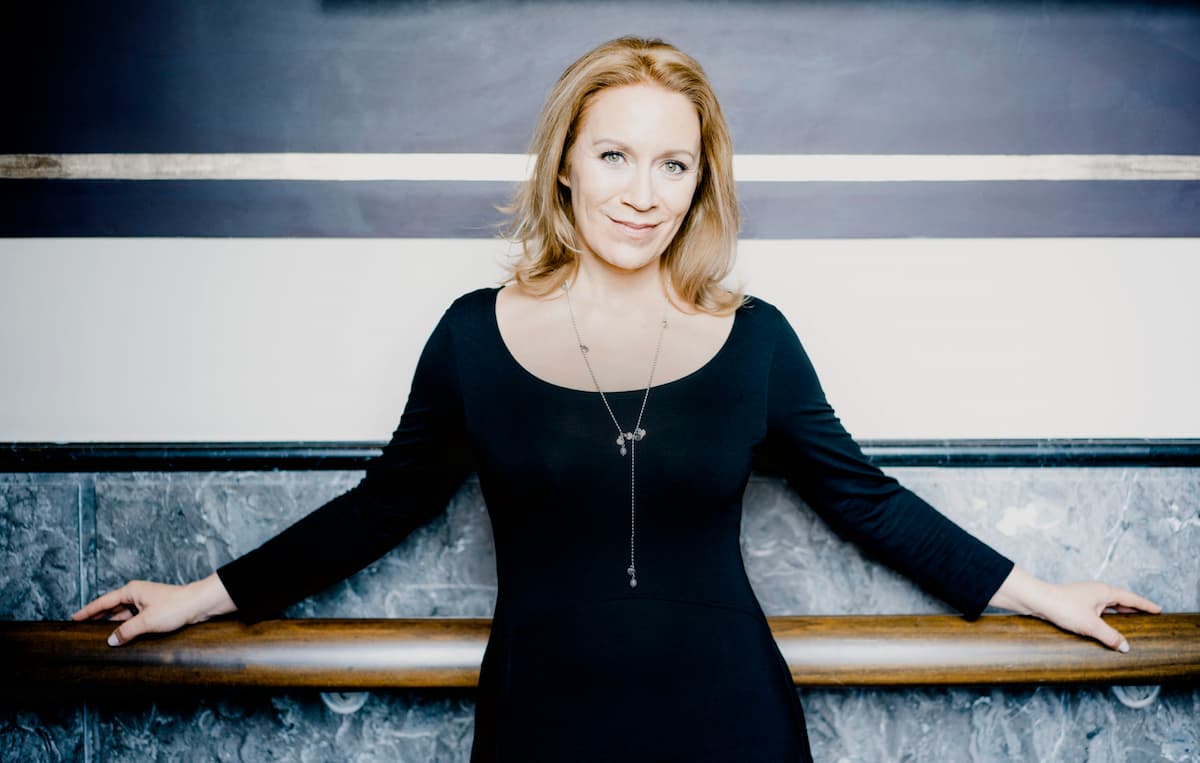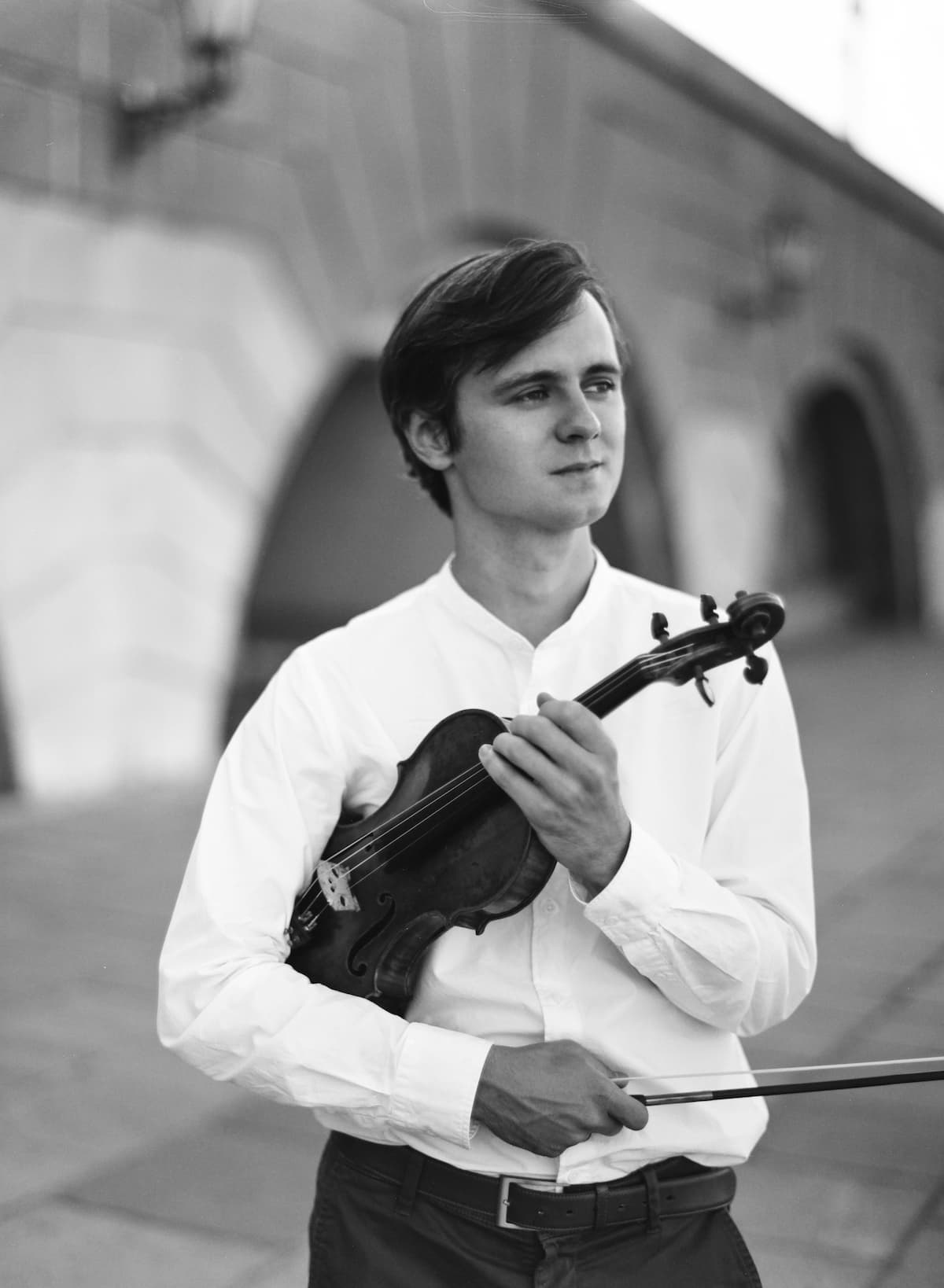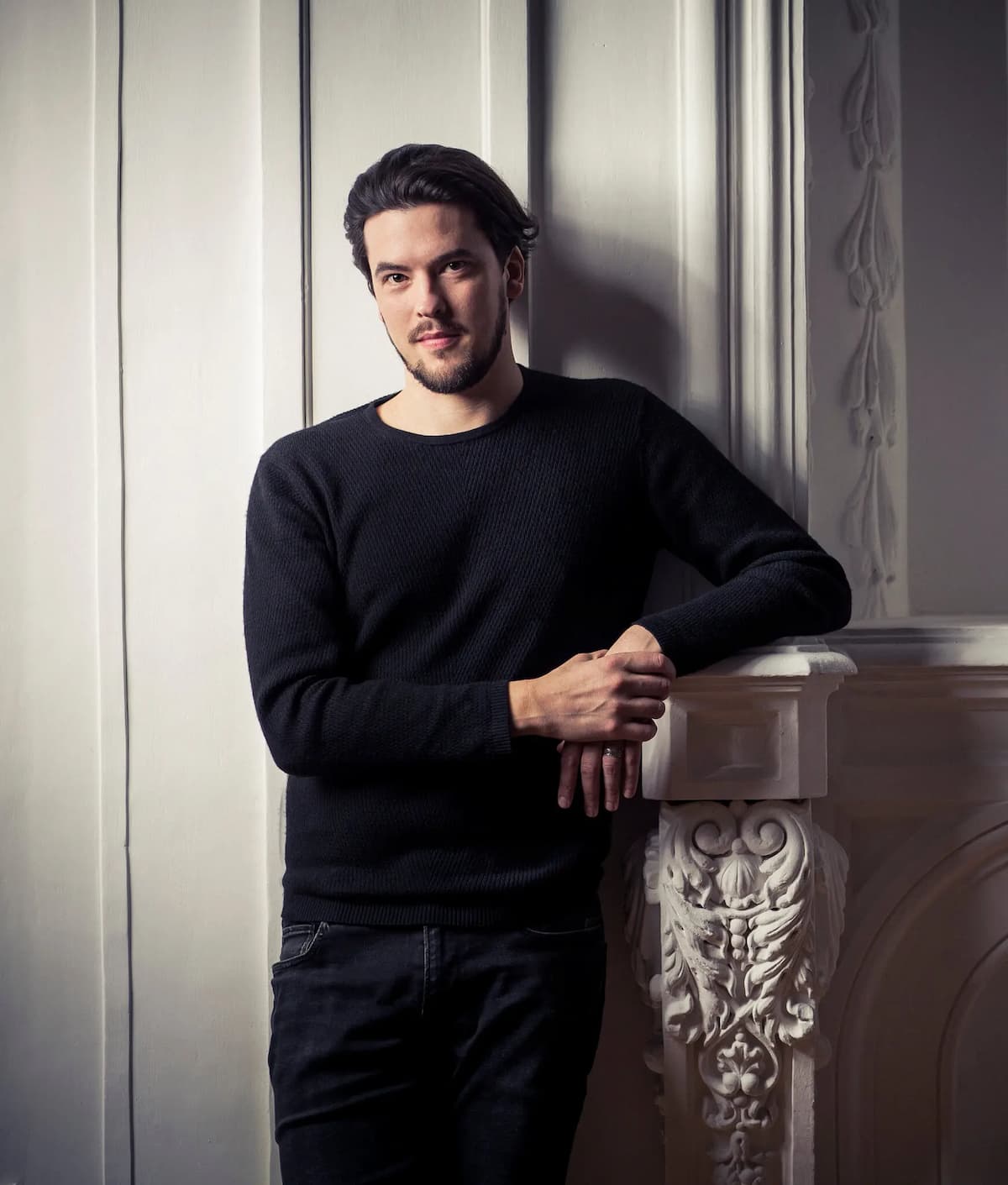‘Expand Our Experience Of Music Beyond What We Might Expect’
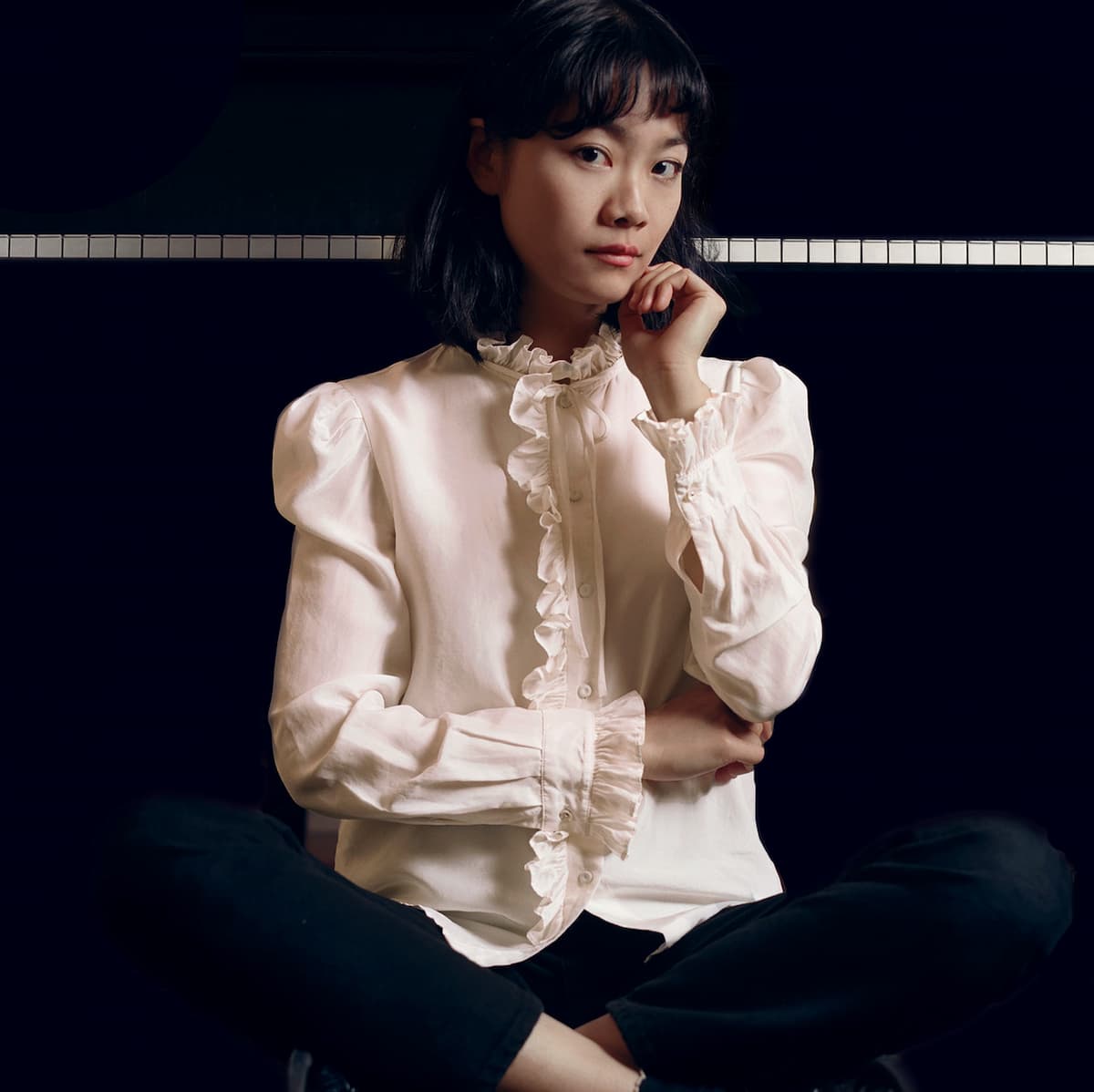
Tiffany Poon © Remy Holwick
Arranging an interview over Zoom with a musician based in New York brings with it certain assumptions: mostly that the background of the meeting will be punctuated by car horns, sirens, or the general low but ever-present buzz of city life. Not so with my chat with Hong Kong-born pianist Tiffany Poon. While she is normally based closer to the action, our talk takes place with Tiffany on a rural chicken farm in upstate New York as she takes a pre-Christmas break on the verge of the release of her debut solo album, Diaries.
Tiffany was admitted to Juilliard’s prestigious Pre-College programme aged 8, sparking a move from Hong Kong to New York where she’s remained ever since. Having finished her studies, including a degree in philosophy from Columbia University through the Juilliard/Columbia exchange programme, Tiffany has toured throughout the US, Europe, Canada, Australia, and China, in addition to founding the nonprofit Together With Classical, reaching and inspiring new audiences from diverse backgrounds.
Tiffany’s debut solo album will be released on 9th February 2024. Diaries is a deep dive into the music of Schumann: what his music means to her, and how Schumann’s music and philosophy influence Tiffany’s own artistry and view of the world today.
How did you find your way to the piano?
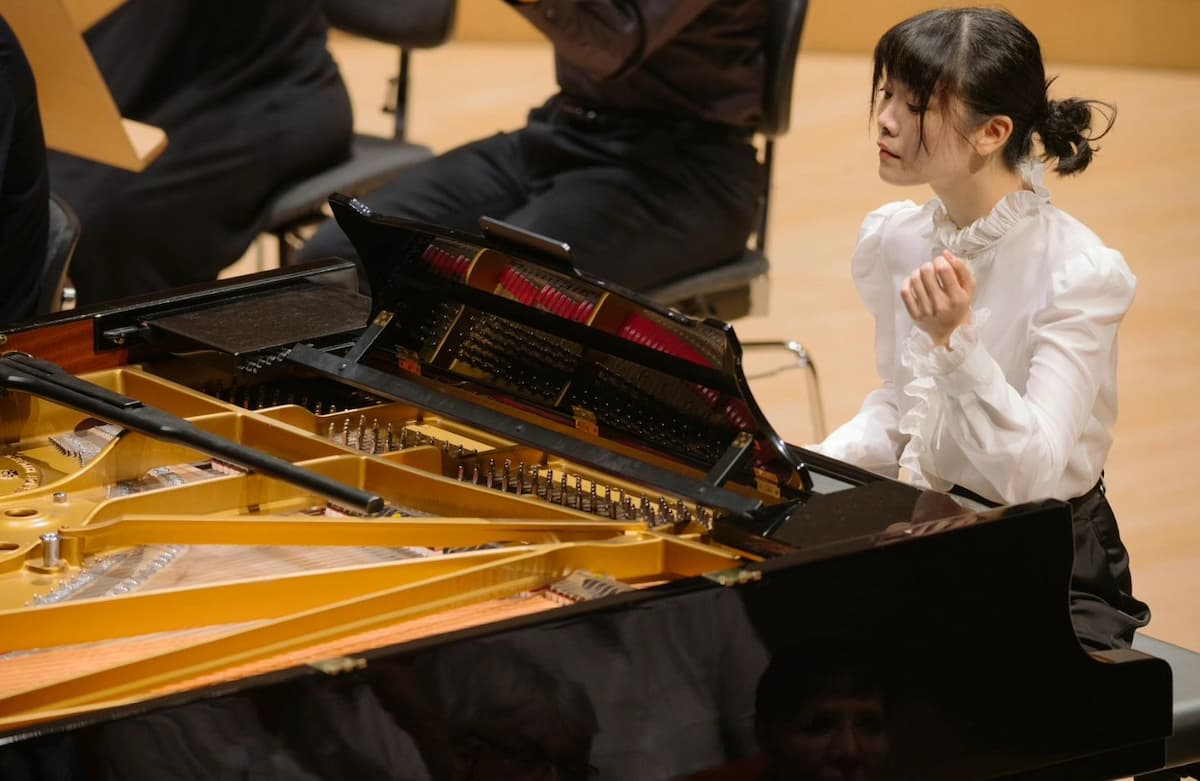
Tiffany Poon performing in Dresden, 2023 © Oliver Killig
I was two or three here [in Hong Kong], and I was playing a yellow toy piano with just four keys – before I went to school I was playing along to Carmen that was being played on my father’s hifi system. He’s a bit of an audiophile and played all kinds of music, and I remember Carmen quite a bit.
Funnily enough, I found out a couple of years ago that I played on this toy piano so much that my mother had to buy a second one for me because the first started getting rusty on top!
And from there on it was just a matter of adding a few more keys?
Yep – at some point, my parents thought, let’s add 84 more keys! It was always a game for me – it’s still very much a game for me. I like to press buttons – I would always race to the elevator with my dad to see who could push the buttons first, that kind of thing. I like tactile things: I like to play with pieces of paper, rip them apart, and make pretend rice. I just like to move my fingers.
Tiffany Poon Plays Chopin’s Fantasie Impromptu
How was it auditioning for the Juilliard programme at such a young age?
I auditioned for Juilliard’s Pre-College when I was seven and got in when I was eight, but I failed the English exam. I remember one of the last questions on the exam was ‘what’s the colour of the carpet,’ and I thought, ‘…what’s a carpet?’
I had to defer a year to learn English, so I went to an international school in Hong Kong for a year before I moved to New York with my mother.
What was it like to move across the world at that age?
I think I was very oblivious for most of my life because I was seven. Maybe nowadays, seven-year-olds know what Juilliard is, what a conservatory is, but to me, it was just a foreign place where I didn’t know what people were saying.
There were some English classes [back in Hong Kong], but it was not the level of conversational 24/7 English, so that was quite a shift for me. I remember the first year when I moved and studied in a normal school, everybody was saying, ‘What’s up?’ and ‘Shoot?’ and I thought literally, ‘What was in the sky, and why is everyone talking about guns?’
Looking back, I can also see how it was such a flip for me. My mother was a flight attendant, so she was the one who was away for the first eight years of my life, and then the next eight years were the complete opposite, where my father stayed in Hong Kong to work, and my mom was with me.
Is there anything else you’ve realised, having now some hindsight on that experience?
Now that I’m looking back at my life – because of the Schumann project, but also in general – a lot of the things I did, like playing the yellow toy piano, weren’t conscious decisions. Now, as an adult, it feels like the decisions we make must have some sort of consequence that is planned and more conscious, and in a way, I miss that naivety, that innocence.
Tiffany Poon Announcing Her Album Release Details
What first attracted you to Schumann’s music?
I was class president at the age of six, the ‘popular kid,’ and then I completely flipped in New York – through the piano and through exploring Schumann’s music, it was, I think, around my teenage years when I really started to feel a deep connection to his music.
I wasn’t going into it for any particular reason. I grew up with Horowitz’s Kinderszenen on a DVD that I would watch a lot back then, even before I came to New York, and I think Arabeske might have been the first piece of Schumann’s that I played – either that or Träumerei.
Something about Schumann’s music felt at home, but also in a fantasy world at the same time – just the amount of characters that I could explore. Through his music, I think that imagination was really exciting as a teenager who had lots of angst and emotions, all that fun stuff.
What else have you discovered while exploring Schumann’s music so deeply?
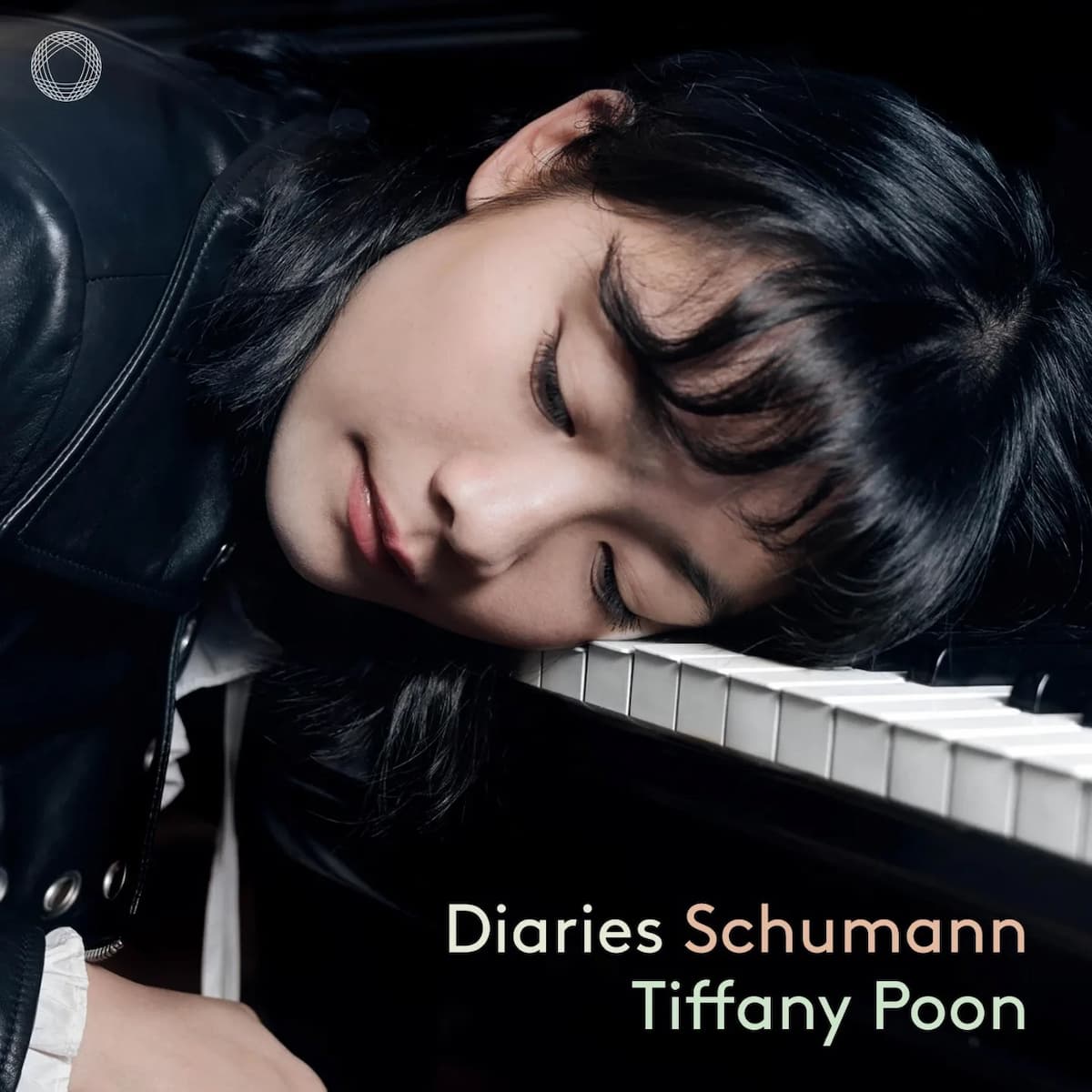
I think the thing of not knowing where Schumann’s music leads is a big part of how it can be kind of difficult for people to immediately gravitate towards Schumann, and I think when I was really pressing hard to make a project on Schumann there was some scepticism.
Maybe it’s because he’s unfortunately known to be a ‘crazy person’, or has that stigma – but it’s 2024, and it would be quite sad today if there was a composer just to be known for whatever mental illness they may or may not have, it’s very unfortunate.
The madness is the one thing that people love to expound upon. There are documentaries made just on the madness of Schumann, and I find that so uncomfortable in a way. Imagine if in modern times, where we take care of mental health and we talk about different aspects of living that maybe in the past you wouldn’t really pay attention to, it would be very problematic if all of a sudden we make similar statements on, or generalisations of, contemporary people.
R. Schumann “Träumerei” on Clara Wieck’s 1827 Stein Piano | Tiffany Poon
Is one of your hopes to move beyond that simple labelling of Schumann?
Perhaps. I think there are many many ways to explain and describe this album. Of course, Schumann has been put into boxes, but I think today, with technology, everything is put into boxes, and there’s a whole different philosophical aspect of how we can expand our experience of music beyond what we might expect, or maybe think outside of the box in general.
Did your thoughts about Schumann change while preparing this recording?
For sure. I didn’t expect my research to expand my thinking of his music so much. Because we talk about the craziness and unpredictability of Schumann’s music, I didn’t expect him to be also quite conservative in some ways.
For example, long before I went into this research phase, I would play Schumann with a lot of rubato and freedom, but if you look into his advice for young musicians, he states we should play in time and not be a drunk-virtuoso-sounding person.
When I then read into his critical reviews, that was very fascinating to me. It kind of aligned with what I try to be as an artist, in terms of not following trends or superficiality, really trying to do art justice but also promoting some progressive perspective on music that might be considered either overlooked or disregarded. I think that was what he was very passionate about.
He called it the fight against philistinism, and I guess in modern language it might be just the fight against a lot of – excuse my language – crap.
I started to find more and more affinity towards Schumann – not only his music but his philosophy, and having a background in philosophy from college made me even more sure that I want to do this album, and I’m really happy that it’s finally coming out.
Has your research into Schumann and his philosophy influenced your own view of the world today?
Nowadays, there’s a routine for going to bed, there’s a morning routine, an evening routine, a practice routine… That whole thing of systemising everything and putting everything into rigid structures: I think it helps to keep accountability, and I understand that, but I think also having to quantify a lot of things and put things into quantifiable structures kind of pushes us to having to label ourselves all the time.
It’s not like health wasn’t a thing in the past. Something else in Schumann’s advice for young musicians – I just reread it recently, which is why it’s on my mind a lot right now – is that you can’t become a good artist if you only rely on sweets and pastries. You have to have a balanced meal.
Maybe nowadays things like nutrition are a bit too optimised to numerical values. It loses that spark of spontaneity and life and I think that’s why I appreciate Schumann’s music because it has that spontaneity. A lot of people might say that’s crazy, but I think it might just actually be very human, because I don’t think we’re the same person as we are when we wake up. When you wake up in the middle of the night, are you the same person as you are on zoom? Probably not.
There are good aspects to modern life – knowing more about diseases and preventing some of the diseases that a lot of our favourite artists and musicians and composers died of – it’s not all doom, but there’s definitely a critical overtone when we talk about Schumann’s so-called craziness, or his wild side.
I think he’s not as wild as people believe if we just step outside of the box and hamster wheel of life.
Schumann Sonata No.2 in G Minor, Op.22 – 1st movement | Tiffany Poon
Are there any new projects on the horizon?
I’m in a planning phase right now. Projects are always on my mind – there’s a lot of planning going on right now, and that’s why I’m in the middle of nowhere at the moment, just to reflect on everything as I prepare to see this album finally go out to the world.
What do you do in your spare time?
I don’t know what counts as ‘free time’ because I’m always thinking of something, and if I’m thinking of something, it means I’m technically working. It’s a hard line to draw, to say, ‘OK, now I’m absolutely free.’ Even right now, although I don’t have access to a piano, I’m doing other things that are related to music.
But what do I do in my free time? I think feeding squirrels is as active as I get with my fingers in my free time, otherwise I’m just talking with my friends or going to dinner.
What is your hope for the album?
It’s called Diaries, with this introspective lens – hopefully, people who listen would think of the things we talked about and take a moment to reflect.
Or not – they can just take a moment to chill and relax, and that’s also fine.
——
More information on Diaries can be found here.
For more of the best in classical music, sign up for our E-Newsletter

